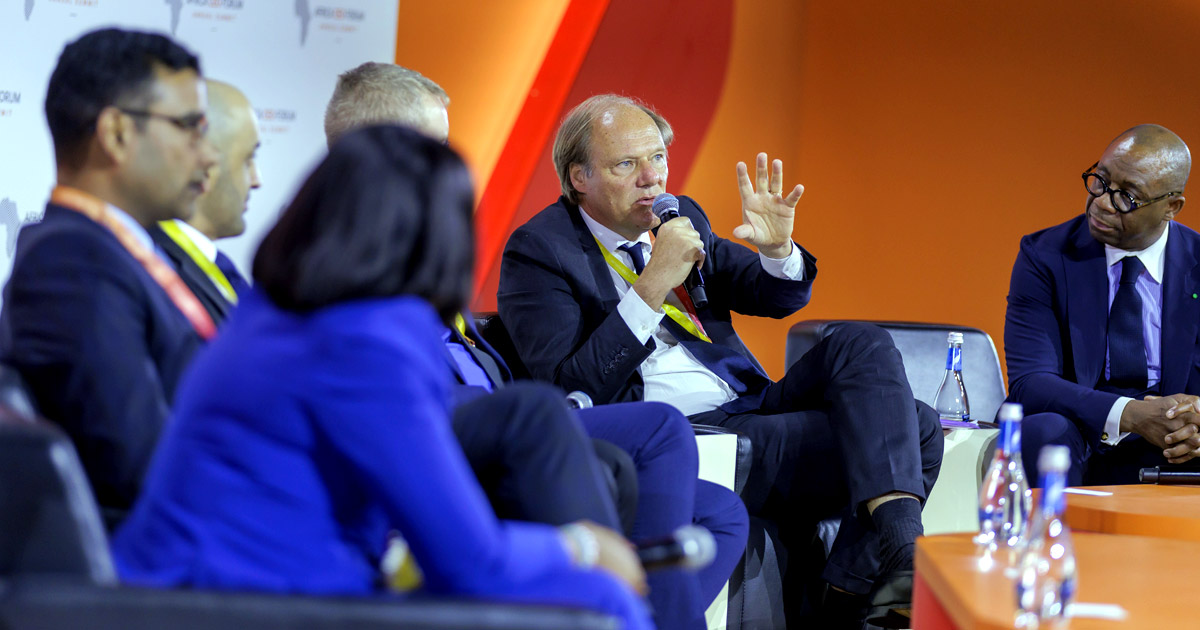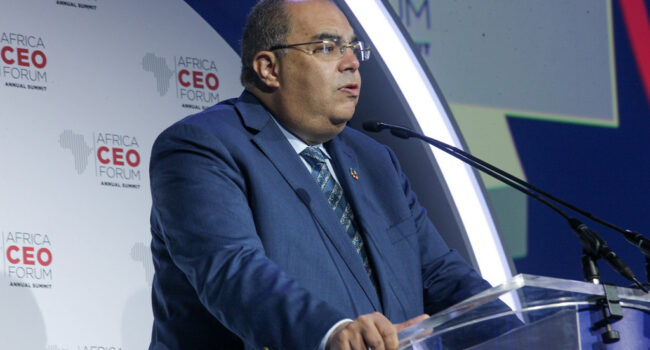
By Nicolas Sartini, Senior Vice President of Business Development, MSC Mediterranean Shipping Company
Despite the ambitious goals set by AfCFTA, intra-continental trade in Africa remains limited, with intra-regional exports accounting for only 18% of total exports—significantly lower than figures seen in Europe (71%) and Asia Pacific (55%). These figures highlight substantial barriers that include inadequate transport infrastructure, restrictive tariffs, and a lack of skilled labour. Moreover, Africa imports approximately $900 billion in goods and services annually, predominantly from China, India, and the United States, while exporting about $800 billion, mainly in mineral fuels and oils. Key sectors such as automotive and agro-processing (food, beverages, textiles, and pharmaceuticals), are hampered.
The continent’s strategic location along major maritime routes such as the Suez Canal and the Cape of Good Hope, coupled with its extensive coastline, establishes it as an essential logistical and shipping hub. This geographic advantage is crucial as Africa navigates its future under the African Continental Free Trade Area (AfCFTA), which aims to revolutionise the continent’s economic landscape.
Wamkele Mene, the Secretary General of the AfCFTA Secretariat, has noted significant progress under the agreement. Speaking at the World Economic Forum in Davos, he highlighted that AfCFTA had already enabled a 20 per cent reduction in duty, effectively increasing competitiveness by the same margin. Furthermore, in 2024, 24 new countries are set to join the seven that have been participating in the Guided Trade Initiative (GTI), the pilot phase of the free-trade project that began in October 2022. The GTI has already facilitated noteworthy trade expansions, such as enabling Ghana to make significant inroads into the East African market, notably to Kenya and Tanzania. Additionally, Uganda has used the initiative to export some of its excess two billion litres of milk to Algeria, while a ceramic-tile manufacturer in Ghana has successfully shipped products to Cameroon.
Africa shows strong economic resilience with a projected average GDP growth of about 4% for 2023 and 2024, surpassing global averages. This growth is supported by Africa’s young and rapidly urbanising population. The implementation of AfCFTA is expected to drive significant consumer demand and facilitate a transition from agriculture to the production of goods, and service-led sectors, diversifying and industrialising the economic landscape across the continent.
What is required to drive the Area’s success
To fully realise the potential of the African Continental Free Trade Area (AfCFTA) and overcome existing challenges, it is essential to implement comprehensive regional strategies focused on developing segmented value chains. Key policy recommendations include adopting harmonised trade policies and regulations across countries. This harmonisation is necessary to simplify the complex trade landscape and facilitate smoother transactions and coordination. Another crucial step is to prioritise investment in intra-African corridors’ infrastructure, such as dry ports, railways, and connecting road systems, which will enhance the physical means through which goods are transported, thus reducing the logistical barriers that currently hinder trade efficiency.
Additionally, leveraging technology to create efficiencies in operations is vital, particularly in trade procedures like customs, transport, and cross-border bottlenecks. Digital platforms can streamline these processes and reduce delays, further enhancing the flow of trade across the continent. To further accelerate the growth of intra-Africa trade, strategic actions are necessary. Enhanced support from local institutions and governments is crucial to enable industries to scale up and competitively price their products within Africa. The maritime industry must also increase the number of port pairs to ensure faster sea connections between African countries.
Streamlining procedures at maritime and inland entry points will allow for the seamless flow of goods, while removing obstacles in inland transport corridors will ensure the safe and efficient transit of goods and people. There is also a need for increased investment in road and rail infrastructure to connect major cities across the continent, thereby enhancing trade flow. Facilitating easier travel for business professionals across borders will aid in face-to-face interactions and trade negotiations.
Moreover, addressing political instability and conflicts is crucial to creating a stable environment conducive to economic growth and trade expansion. Simplifying the number of currencies used in trade to a maximum of two or three will ease the process of doing business across borders. Finally, increasing public-private partnerships, particularly in critical sectors like banking, insurance, logistics, and telecommunications, is vital to mobilise resources and expertise for trade development and infrastructure.
A vision for the future
The path ahead for Africa, though filled with potential, presents considerable challenges that require unified action from all stakeholders—governments, businesses, and international organisations. To harness the benefits of AfCFTA, these entities must prioritise investments in infrastructure, engage in strategic partnerships, and advocate for the necessary policy reforms that facilitate easier and more efficient intra-African trade. MSC calls upon these stakeholders to commit to these actions, ensuring that the continent does not merely participate in the global market but thrives as a prominent player.
As we advance, the implementation of regional strategies that have been successful in other parts of the world will be crucial. These strategies should concentrate on developing segmented value chains that can transform Africa’s role in the global economy from a raw materials supplier to a value-added participant. The transformative journey is undoubtedly complex, but with concerted efforts and strategic investments, a new era of prosperity can be unlocked for Africa.
The African Continental Free Trade Area is not just a trade agreement but a beacon of hope for economic integration and social upliftment. At MSC, we are excited to be a part of this transformative journey, contributing to a future where Africa is at the table.



